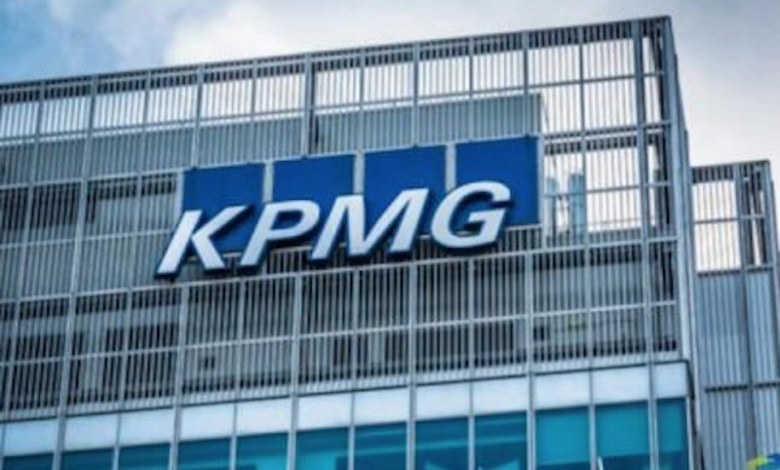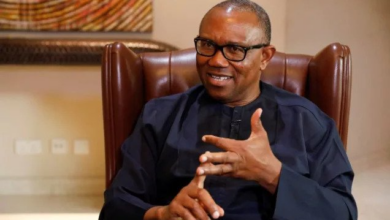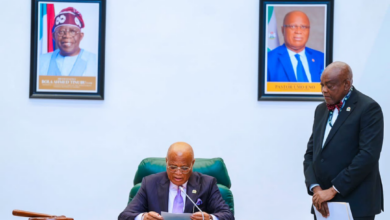Monetary Tightening Not Enough to Tame Inflation – KPMG
*FDC: Nigeria’s surging prices to peak, begin moderate decline from second half of 2024 *Suggests VAT should be raised to 10% to fund minimum wage hike *Says Naira undervalued by 26.76%

KPMG, a global audit, tax and advisory services company, has said that the recent decision by the Central Bank of Nigeria (CBN) to raise the Monetary Policy Rate (MPR) to 24.75 per cent, could help attract more portfolio investments, but not enough to tame inflation.
However, the firm, in its ‘flashnotes’ tagged: “CBN’s Monetary Tightening: The Trade-off Dilemma”, stated that the decision although a step in the right direction, was not enough to tackle the country’s inflation.
According to thisdaylive.com, the Monetary Policy Committee (MPC) of the CBN raised the bank’s MPR to 24.75 per cent in March 2024, bringing it to its two-decades highest and representing a 200 basis points (bps) increase from the previous 22.75 per cent set in February 2024.
Also, the CBN narrowed the asymmetric corridor to +100/300bps around the MPR in its March meeting after initially widening it to +100/-700bps around the MPR.
Furthermore, the committee left both the Liquidity Ratio and the Cash Reserve Ratio (CRR) unchanged at 30 per cent and 45 per cent, respectively. For merchant banks, however, the CRR was raised from 10 per cent to 14 per cent.
Despite these upward adjustments, inflation remained elevated reaching 31.7 per cent in February 2024. This necessitated the more aggressive response of the apex bank to address inflationary pressures.
These moves, KPMG said, are not only consistent with market expectations, but also reaffirm the independence of the CBN in its conduct of monetary policy, but noted that the CBN needs to guard against the negative impact of the decision.
“We expect the higher MPR to attract greater FX inflows that would drive the appreciation of the Naira in the foreign exchange market. Most of these gains are expected to come from portfolio investments with the risks of sharp reversals when market signals change.
“However, there are risks of inadvertent growth slowdown associated with the policy. With the real sector already burdened by high borrowing costs and inflation, the CBN’s decision could further shrink the sector by disincentivising investments.
“This may adversely affect employment and growth levels. Furthermore, the policy may also give rise to higher non-performing loans. The next few months will be important for assessing the impact of the CBN’s monetary tightening on inflation,” it added.
Statistically, KPMG noted that inflation is set to lose steam after mid-year, largely because of the onset of base effect, except economic policies that significantly pressure prices are implemented by the federal government.
“Attributing a decrease in inflation solely to the tightening of liquidity once the base effect kicks in after mid-year might be inaccurate,” the consulting firm added.
Addressing Nigeria’s supply-side bottlenecks, it posited, is crucial for taming its cost-push inflation, adding that unless the challenges are sustainably addressed, inflation may yield little to monetary tightening.
“The downside of this “hot money” inflow, however, is the risk of sharp reversals in response to changes in market signals. Large scale capital reversals are historically known to birth macroeconomic instability.
“ Furthermore, we note that targeting inflation from the demand-side (via a sustained monetary tightening of such scale) may inadvertently cause Nigeria to trade-off some growth for lower inflation.
“This is especially worrying as the nation’s growth has been slow, fragile, and decelerating (3.4 per cent in 2021, 3.1 per cent in 2022 and 2.74 per cent in 2023) in recent times. With the real sector already burdened by high borrowing costs and inflation, the CBN’s decision could further shrink the sector by disincentivising investments.
“The higher borrowing costs may induce a scale back on investments in the real sector, adversely affecting employment and growth levels. Also, monetary tightening of such scale may give rise to higher non-performing loans.
“ The higher interest rate environment may strain borrowers’ finances and raise their risk of defaulting on loans,” it added.
These decisions, the firm stressed, restrict the ability of banks to channel credit to support the economy’s ambitious growth drive.
Thus, KPMG added that the restrictive monetary policy environment further casts shadows on the attainability of the government’s economic objective. Besides, it posited that there have been concerns that inflation has remained elevated despite previous policy rate hikes. “This is because Nigeria’s inflation is largely due to supply-side factors driving cost-push inflation,” it argued.
Impacted by the pump price of petrol which surged by 157 per cent year-on-year in February 2024, and the Naira which depreciated by over 225 per cent between June 2023 and March 2024 in the official market, it said these higher energy and transport costs as well as import prices have affected Nigeria’s highly import-dependent economy.
“Other contributory factors include climate change, continued spates of insecurity affecting strategic farming communities, and increase in Ways and Means withdrawals which raised money supply significantly,” it added.
The research firm said it recognises that price stability is a necessary condition for economic growth, but equally notes that raising interest rates is a natural response to inflationary pressures in monetary policy playbooks.
“However, we emphasise that monetary tightening is more apt for addressing demand-pull inflation. Thus, inflation may yield little in response to the monetary tightening efforts, unless the supply-side bottlenecks fanning cost-push inflation are also addressed.
“Eliminating these bottlenecks will require concerted efforts from both fiscal and monetary authorities. We are confident that such efforts will better deliver the intended price stability without trading-off economic growth,” it pointed out.
Meanwhile, Financial Derivatives Company Limited (FDC) has projected that Nigeria’s inflation rate which surged to 31.7 per cent in February, could peak in the second half of 2024 and thereafter begin a gradual decline.
In its monthly Lagos Business School (LBS) Breakfast Session for April, the research and market intelligence firm based in Lagos, described the current rate of inflation in Nigeria as “stubbornly high”, stressing that with effective implementation of policies, the desired economic trajectory can be achieved.
It said that the Purchasing Managers Index (PMI) which essentially measures contraction or expansion in the manufacturing sector, remained flattened at a four-month low of 51 in March, although economic growth remained positive but tepid.
The Bismarck Rewane-led group stated that there has been some recovery on the back of a strengthening naira for now, stressing that this is expected to expand in 2025/2026 after flattening in 2024.
“Inflation remains stubbornly high, expected to moderate in H2. Money supply rose sharply by 79 per cent in February, set to moderate in H2. Nigeria policy policymakers are stuck in the middle, that is, either going with the global flow or in search of economic patriotism.
“Inflation is set to peak in May/June and begin to decline after the wage review, while the external sector remains weak due to currency misalignment,” the report said.
FDC stated that there was the need for ‘new money’, in the form of Eurobond and multilateral funding, plus the completion of numerous standard projects, sale of dead assets and ‘concessioning’ of roads, bridges, airports, and seaports.
It added that there had also been moves for securitising some of the parked ‘ways and means’ advances, engaging with the commercial creditors to refinance existing and maturing obligations as well as constructive engagement with labour on a meaningful living wage.
But on the effects of the planned minimum wage, FDC said it will impact on inflation by increasing firms’ costs of production, while firms would transfer the high-cost rise in wages to the consumers in terms of higher prices.
It stated that there will also be an increase in consumer spending, general price of goods and services will rise, arguing that a higher minimum wage could cause inflation for two reasons.
FDC said that higher wages will cause higher spending by workers, that is, demand-pull inflation and higher costs for firms, leading to wage-push inflation.
Increase in minimum wage , it said, will make labour to be more expensive and could lead to a drop in demand for labour and further result in excess supply of labour, leading to an increase in the rate of unemployment.
However, it maintained that the impact of minimum wage increase on unemployment will depend on real wage rate.
On ways to fund the minimum wage, it said : “In 2019, VAT moved from 5 per cent to 7.5 per cent. VAT can be increased from 7.5 per cent to 10 per cent, improve labour productivity by training and skill development, introduce targeted social programmes such as subsidised childcare, healthcare and housing assistance to support vulnerable workers.
“Gradually phase in minimum wage increases to allow businesses and workers to adjust. Tailor policies to specific sectors such as agriculture, manufacturing, etc.
“Provide targeted support, such as tax incentives, access to credit, and business development services to small businesses, strengthen safety nets to protect workers during transitions such as unemployment benefits, job placement services, and income support.”





